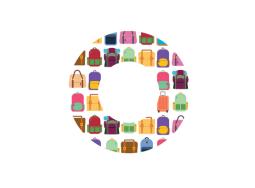European trade union federation starts project for inclusive education

8 February 2020 - The European Trade Union Committee for Education (ETUCE) has initiated a project to promote concrete measures for inclusive education. Previous research showed that teachers and other education personnel often do not feel prepared and supported to teach students from diverse socioeconomic, cultural and linguistic backgrounds The project promises to include LGBTI issues.
Lack of practical training on inclusive teaching
This new project is just getting started, but ETUCE and education trade unions have been focusing on diversity, equality and inclusion for some years. These issues are getting more political attention, and education personnel are committed to giving all learners the best education possible. However, the research in ETUCE’s recent EU CONVINCE project showed that teachers and other education personnel often do not feel prepared and supported to teach students from diverse socioeconomic, cultural and linguistic backgrounds. The key reasons are a lack of relevant and practical training on inclusive teaching and learning and the lack of support for education staff and institutions.
Input for ETUCE action plan
Through this two-year project, co-funded by the European Commission, ETUCE will promote concrete measures for the implementation of upcoming ETUCE Action Plan on Equality, Diversity and Inclusion at national and local level. The project will also enrich our Database of Good Practices, creating an extensive catalogue of workable approaches for building inclusive learning environments across Europe.
At their first meeting on 23 January 2020, the project’s international Advisory Group worked with a researcher to prepare an online survey for ETUCE member organizations. The survey will offer a snapshot of trade unions’ expertise and activities related to the various aspects of inclusion in education, including but not limited to migration and ethnic diversity; LGBTI issues; gender equality; students and teachers with special needs.
Sources: ETUCE news item, introduction to project


